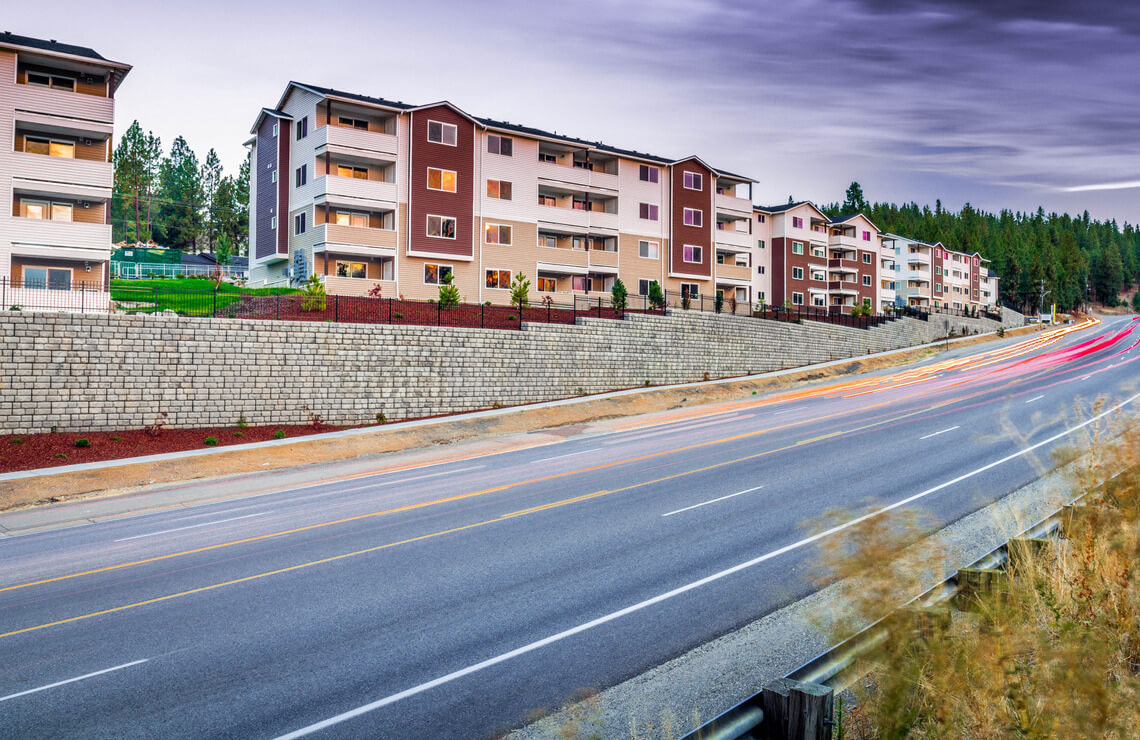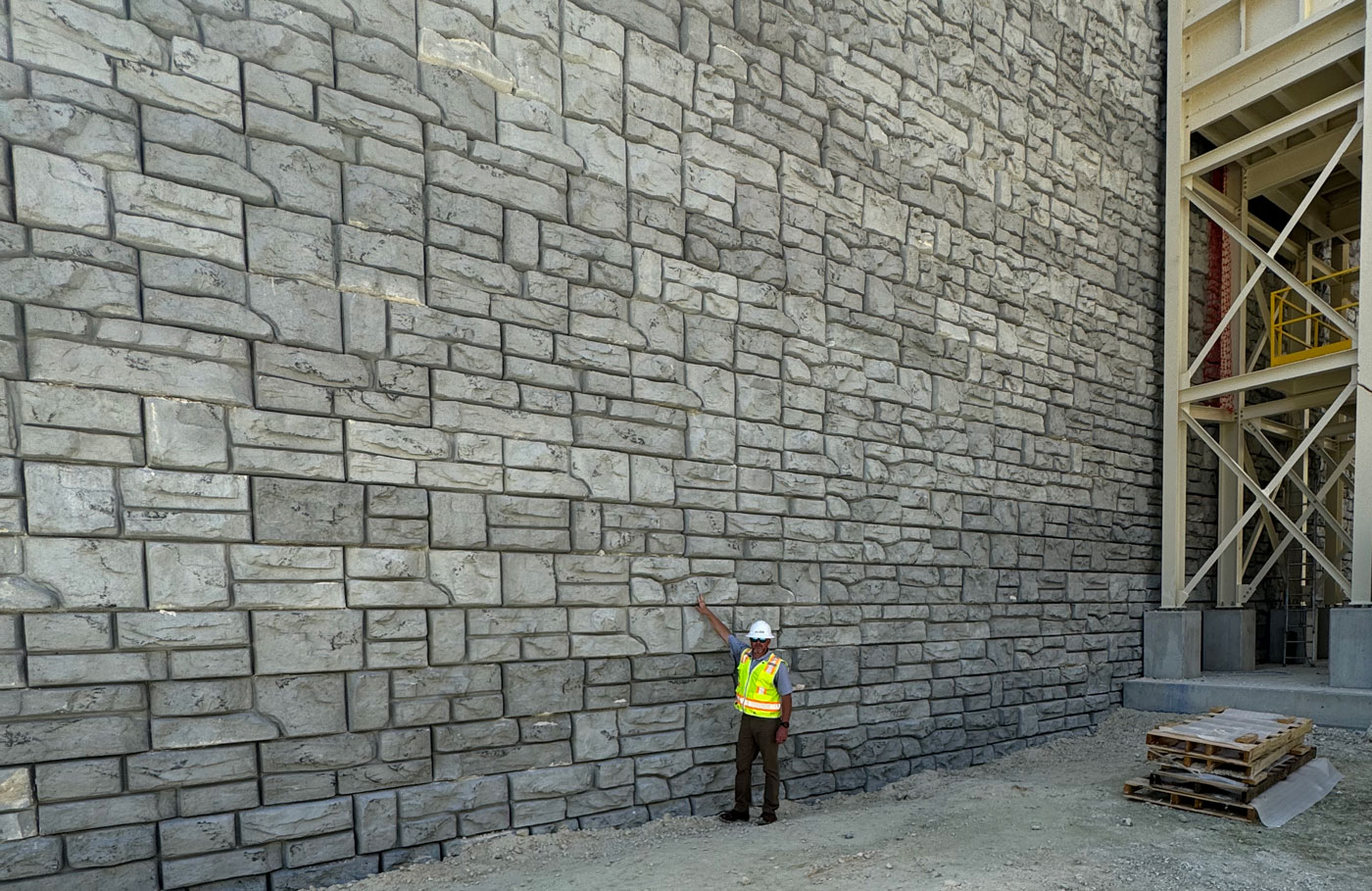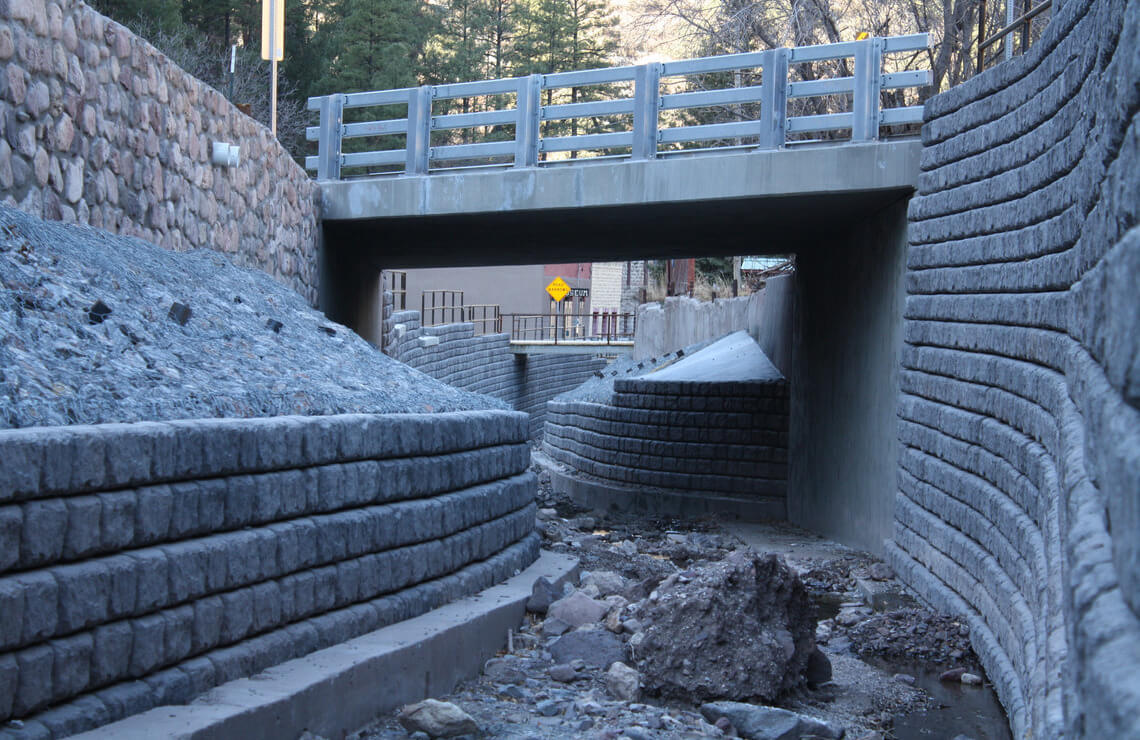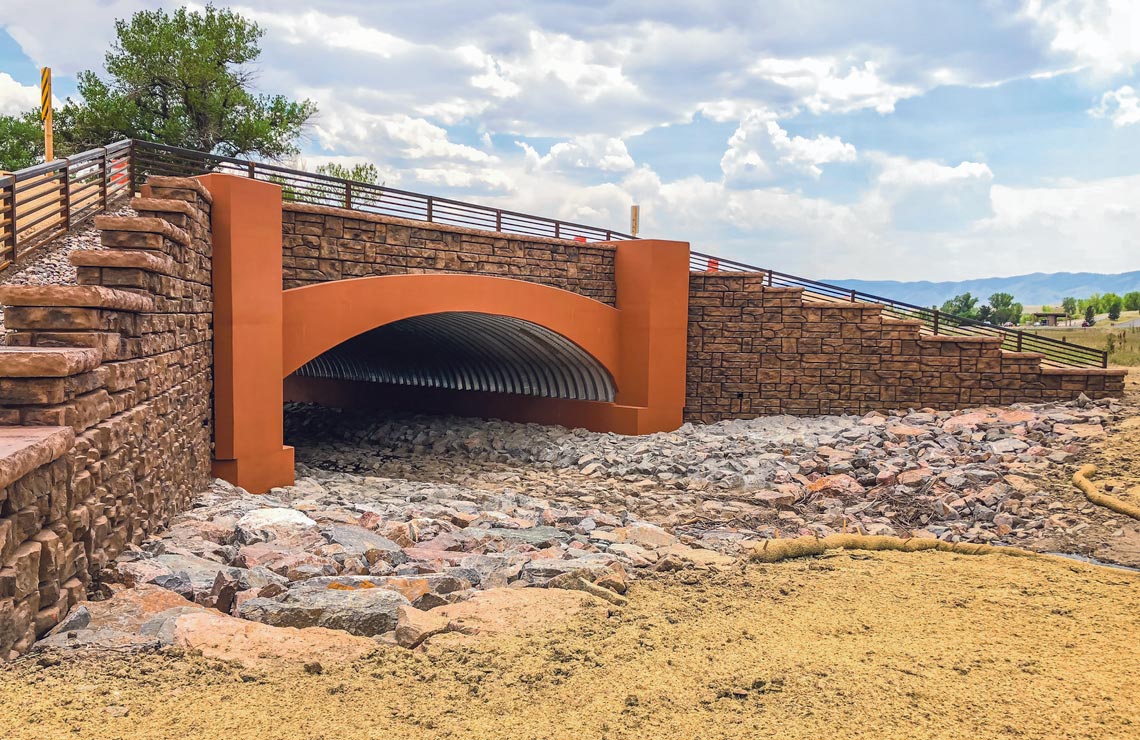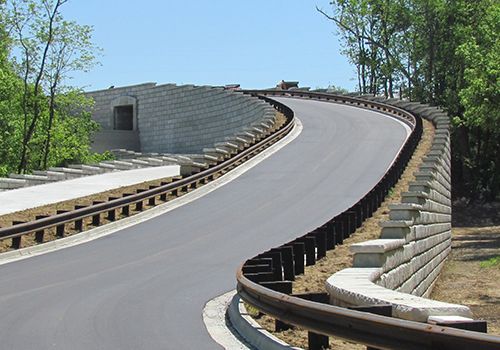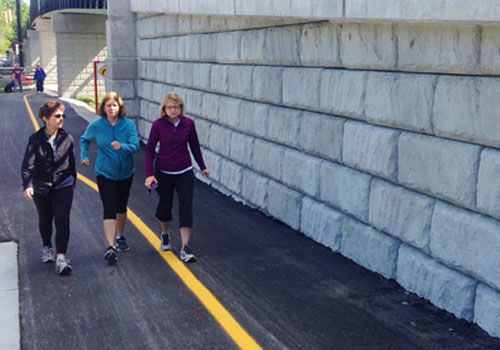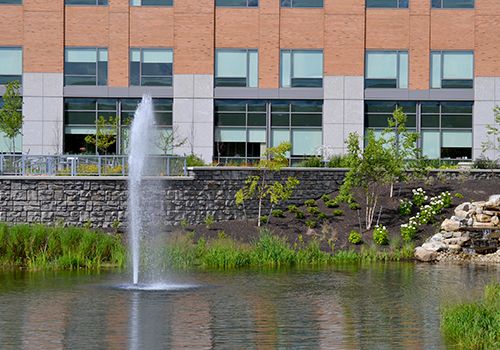MSE/REINFORCED WALLS
Build big walls and support massive live loads with confidence using Redi-Rock’s mechanically stabilized earth (MSE)/reinforced solution.
Redi-Rock reinforced walls can help achieve wall heights over 50 ft (15 m)
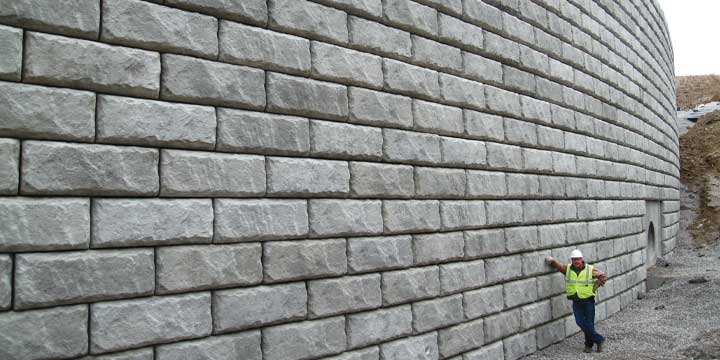
Reach Heights Over 50 ft (15 m) Tall
Redi-Rock’s Positive Connection (PC) blocks are designed so you can build MSE/reinforced walls that aren’t limited by the wall's weight, only the strength of your geogrid. This means you can build taller.
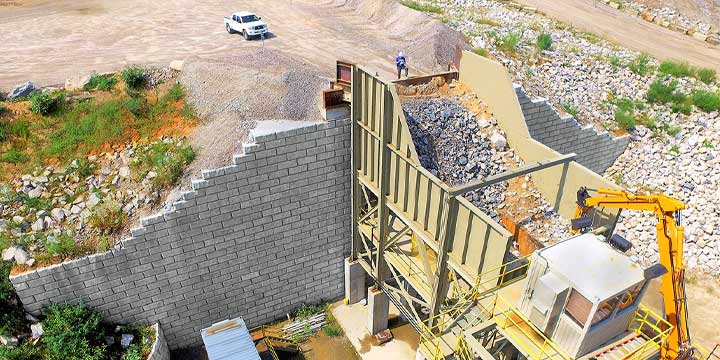
Support Heavy Live Loads
PC walls have a very strong top connection, unlike friction connections which may not offer enough strength to support heavy live loads. Handle Massive live loads with ease.
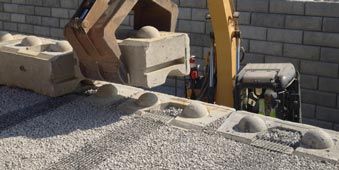
Reduce Geogrid Installation Errors
The 12-in (300 mm) strip of geogrid wraps securely through the center of PC blocks, eliminating the connection failures and complicated installation often experienced with geogrid sheets. Design and build taller walls with confidence.
Do I Need a MSE/Reinforced Wall for My Project?

Learn the differences between gravity and MSE/reinforced walls and which is a fit for your project.

See how the Redi-Rock PC system works, how geogrid connects to blocks, and more.

Share a few basic site details and generate MSE/reinforced wall options for your project.
Installing MSE/Reinfocred Walls with PC Blocks
Watch the Redi-Rock’s proprietary Postive Connection (PC) blocks in action with this step-by-step installation video. Learn how pairing PC blocks with geogrid eliminates connection failures and allows for taller walls.
Stop Building Ugly Walls
With handcrafted textures captured from actual rock faces, you’ll get a wall that will look great for a lifetime.
